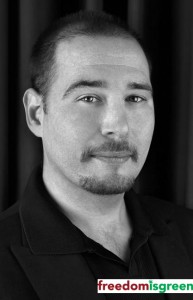7/29/2011 – The Brewer Public Housing Authority passed a ban on medical marijuana this week. Maine residents with qualifying medical conditions have accessed cannabis though home cultivation or caregivers since 2000. Voters approved an expansion of the law in 2009 that allows eight dispensaries. The first four opened this year. But it will be impossible for seriously ill Brewer Public Housing tenants to participate in the state’s compassionate use program.
The Bangor Daily News reported:
“No resident can use medical marijuana in our projects [and] if they do they will be evicted,” Executive Director Gordon Stitham said.
The ban covers both public housing units and privately owned properties that fall under the federally funded Section 8 housing program, he said.
“Any landlord or any tenant receiving public assistance under the Section 8 Housing Choice Voucher Program will not be able to use medical marijuana in their units,” Stitham said. read full
This could mean that those patients already in the program who wish to keep their housing must use the therapy and store their supply away from home.
But wait, there’s more. Here’s the most chilling part of the BHPA decision:
“You can have it, but you’re not going to bring it into our projects,” Stitham said, adding that applications for housing from medical marijuana patients will automatically be rejected.
“We’re not going to be able to serve you because of the medical marijuana,” he said. read full
Unfortunately, Brewer is not alone. Housing authorities around the country have made the same move to create a hard policy of denying any applications from registered medical marijuana patients. Vancouver, Washington and Portland, Oregon have issued similar bans.
Kris Hermes is the spokesperson at Americans for Safe Access (ASA), a national lobbying group for medical marijuana. They also have an impressive record of successful lawsuits protecting people’s civil rights. He said they frequently hear from patients who are affected by these policies.
“This is definitely a common complaint,” said Hermes. “People report to ASA that they are being discriminated against by landlords and housing authorities.”
These new policies seem like clear cases of discrimination against low-income individuals dealing with a major illness, such as cancer or HIV. But because of the close tie-ins with federal funding, especially Section 8, the local managers tend to defer to the fed.
The US Department of Housing and Urban Development (HUD) did issue a memo in January 2011 to address this issue. HUD pointed out that marijuana remains illegal under federal law, therefore no accommodations are required for patients in state programs.
But Keith Stroup Esq. at the National Organization for the Reform of Marijuana Laws (NORML) pointed out that HUD left the policy decision up to housing managers. “The impression we had is that the local authorities have the discretion,” said Stroup today.
Memos from the US Department of Justice have also made clear that federal authorities should not interfere with individual medical marijuana patients. Local housing boards may need to take the DOJ position into consideration as well as HUD’s comments when deciding on a policy.
Some states, like Rhode Island, have stronger language in their compassionate use laws that may serve to protect patient housing. But the only way to really gain those protections is to get a court ruling to strike down a local ban.
In Brewer, Maine, the blanket opposition to medical marijuana seems to be standard operating procedure. A moratorium was passed in 2010 to make sure none of the state-regulated dispensaries could locate in the town. Regardless, enforcing the new housing policy may be extremely difficult. New provisions were enacted by Maine’s Legislature this year that expand privacy protections for those in the medical cannabis program. Patients are no longer required to be part of the state registry.
Kris Hermes at Americans for Safe Access said, “It is unconscionable in this age to be preventing poor medical marijuana patients from participating in public housing.”
Chris Goldstein is a respected marijuana reform advocate. As a writer and radio broadcaster he has been covering cannabis news for over a decade. Questions? [email protected]
